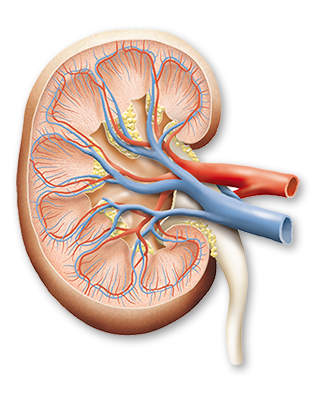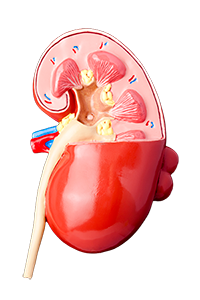
WHAT DO OUR KIDNEYS DO?
Our kidneys are one of our most vital organs. Silently working and with very important functions, our kidneys are the hard workers of our body. The most important functions of our kidneys are:
- Its primary function is to remove waste products such as urea, creatinine, excess fluid, and toxins from the body. On average, it filters 200 liters of blood per day to produce 1.5 liters of urine. In this way, harmful substances are removed.
- It provides the balance of some vital minerals (sodium, potassium, calcium, phosphorus) in our body. It also regulates the acidity of our body.
- Many drugs are excreted from the body through the kidneys after they have taken effect.
- The kidneys produce and secrete some hormones that affect the function of other organs. The most important of these is a hormone called erythropoietin, which stimulates blood production in the bone marrow. The kidneys also activate vitamin D, which is essential for bone and muscle function.
- Our kidneys regulate blood pressure by maintaining salt and water balance through the hormones they secrete. Therefore, when kidney disease occurs, blood pressure is also negatively affected, i.e., it rises.



